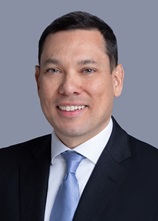Investment Funds Update
Singapore Investment Management Regulatory Update (July 2025)
Regulatory Proposals
1. MAS Proposes to Remove Advertisement Regulation Exclusions for Financial Advertisements Targeting Institutional and Accredited Investors
2. MAS Proposes to Allow Singapore Retail Investors Access to Private Market Investment Funds
3. Liquidity Risk Management Framework for LFMCs to Be Reviewed
Regulatory Updates
4. Updates to AML/CFT Notices and Guidelines
5. Supervisory Expectations for Managers of VCCs
6. Notification Requirement for Adverse Developments
7. Relaxation of Timing for MAS Prior Approval for LFMC Acquisitions
8. MAS Enforcement Priorities for 2025–26
Regulatory Proposals
On May 6, 2025, the Monetary Authority of Singapore (MAS) issued a consultation paper proposing to amend current regulations on financial advertisements in a bid to ensure that accurate and fair information is given to all investors in a clear and legible manner.
Currently, Singapore licensed fund management companies (LFMCs) are required to ensure that their product advertisements are approved by senior management and are fair and balanced and not false and misleading, among other requirements. The advertisement requirements do not apply where an LFMC is marketing a fund under certain offering exemptions, including those for institutional and accredited investors.
MAS has proposed to remove these exclusions, with the result that an LFMC must comply with the product advertisement rules regardless of the target audience. In addition, there will be no exclusions for non-product advertisement requirements, to ensure a consistent approach.
The consultation period closed on June 5, 2025. The amendments are expected to come into force at the same time as the legislative amendments set out in an earlier consultation paper on enhancing safeguards for proper conduct of digital prospecting and marketing activities.
2. MAS Proposes to Allow Singapore Retail Investors Access to Private Market Investment Funds
In line with recent global trends to allow or enhance retail access to private market investments, on March 27, 2025, MAS issued a consultation paper on providing retail investors with access to private market investment funds through long-term investment funds (LIF) that are constituted in Singapore and authorized by MAS.
Under the proposed framework, retail investors will be able to access private equity, private credit, and infrastructure investments through MAS-authorized LIFs. A MAS-authorized LIF can take the form of either a direct fund that makes direct private market investments, providing retail investors with greater visibility of the fund’s underlying private market investment assets, or a long-term investment fund-of-funds (LIFF) that invests primarily in private market investment funds, which are beneficial for retail investors who wish to tap into the LIFF manager’s expertise in selecting and monitoring a LIFF’s underlying private market investment funds.
The requirements MAS is proposing to put in place may be broadly categorized into three groups: (i) LIF manager requirements, (ii) LIF requirements, and (iii) disclosure requirements. For further information on the key requirements, please refer to our Client Update here. The consultation period closed on May 26, 2025.
3. Liquidity Risk Management Framework for LFMCs to Be Reviewed
MAS is conducting a review exercise to study the need to re-examine the current liquidity risk management framework applicable to LFMCs. This review exercise, announced by MAS Managing Director Mr. Chia Der Jiun during the annual Investment Management Association of Singapore Investment Conference on April 23, 2025, aims to enhance the resilience of Singapore’s fund management industry in normal and stressed market conditions. It is also in line with calls made by global regulatory bodies such as the Financial Stability Board and International Organization of Securities Commissions to reinforce consistency between a fund’s investment strategy and liquidity with redemption terms. MAS will engage the industry on any changes when it is ready to do so.
Regulatory Developments
4. Updates to AML/CFT Notices and Guidelines
On July 1, 2025, the revised MAS notices and guidelines on anti-money laundering and countering the financing of terrorism (AML/CFT), as applicable to MAS-regulated financial institutions, including LFMCs as well as variable capital companies (VCCs), took effect.
The revisions were introduced following a consultation paper issued by MAS in April 2025, proposing to update the notices and guidelines to take reference from the latest revised standards set by the Financial Action Task Force. MAS issued its response to feedback received on June 30, 2025.
The amendments comprise clarifying that money laundering includes proliferation financing, prescribing certain minimum information to be obtained in relation to the customer and beneficial owner of a customer, setting out supervisory expectations that a suspicious transaction report should be filed no later than five (5) business days after suspicion is first established ― or, in cases involving sanctioned parties, no later than one (1) business day after suspicion is first established ― and clarifications on areas of screening and establishment of source of wealth and source of funds.
5. Supervisory Expectations for Managers of VCCs
On June 26, 2025, MAS issued a circular entitled Governance and Management of Variable Capital Companies (Circular). The Circular sets out MAS’ observations and supervisory expectations from a thematic review of VCCs and their managers in 2024. Some key points from the Circular are as follows:
- Custody. Managers of VCCs must ensure that all assets under management are subject to independent custody unless the assets are private equity or venture capital investments offered only to accredited and institutional investors.
- VCC director. A VCC director that carries out regulated activities such as deal sourcing, investment research, portfolio management, or trade execution for the VCC’s investments, or undertakes client-facing activities such as account servicing, business development, or marketing, is expected to be appointed as a MAS-licensed representative of the VCC manager.
- Substantive fund management activity. A VCC manager is expected to have a substantive role in the management of the VCC and be actively involved in all aspects of investment and risk management, including portfolio construction, investment due diligence, and analysis. VCC managers should not (i) provide a conduit for customers to structure investments or assets in the form of fund units without providing any substantive input or influence over the merits or suitability of the investment or assets or assuming responsibility for their investment performance, (ii) set up VCCs that merely serve as a conduit for the offer of funds managed by other fund managers, or (iii) purely engage in marketing of the VCC.
- AML/CFT. VCCs are reminded that they remain responsible for fulfilling their AML/CFT obligations. There should be sufficient oversight exercised by VCC directors over the eligible financial institution (EFI) appointed by the VCCs to ensure that AML/CFT frameworks and controls implemented by the EFIs are robust and effective.
6. Notification Requirement for Adverse Developments
On January 24, 2025, a new Regulation 11C was introduced to the Securities and Futures (Licensing and Conduct of Business) Regulations, requiring an LFMC to notify MAS of certain adverse developments immediately after becoming aware of that fact.
The new regulation covers notification of (i) material adverse developments affecting the financial soundness or reputation of an LFMC or its ability to carry out fund management activities; (ii) an LFMC’s CEO, director, substantial shareholder, or effective controller ceasing to be fit and proper for that role; or (iii) an LFMC being unable to conduct its business prudently or to comply with the requirements of the Securities and Futures Act (SFA), having regard to the likely influence of its substantial shareholder or effective controller.
While the regulation is new, some of the notification requirements already existed in substance prior to the effective date in the form of MAS guidelines or license conditions. These existing notification requirements have now been codified into subsidiary legislation.
7. Relaxation of Timing for MAS Prior Approval for LFMC Acquisitions
Pursuant to an amendment to Section 97A of the SFA, with effect from January 24, 2025, proposed acquirers seeking to obtain effective control of Singapore LFMCs are no longer required to obtain approval from MAS prior to signing the sale and purchase agreement (SPA) for the transaction; instead, they may proceed to enter into the SPA as long as completion of the acquisition is subject to MAS approval being obtained in relation to the effective controllers.
Alongside this change, MAS issued revised computation examples on how a person will be deemed to have effective control over a Singapore LFMC under Section 97A. The computation examples are set out in a revised application form to be used for seeking MAS approval.
Please refer to our Client Update here for further information on the changes.
8. MAS Enforcement Priorities for 2025–26
On April 14, 2025, MAS published its latest enforcement report for 2023–24 (Enforcement Report). The Enforcement Report sets out past enforcement actions taken by MAS for the period between July 1, 2023, and December 31, 2024, and outlines key enforcement priorities for the next year.
MAS will be focusing on the following areas as its enforcement priorities for 2025–26:
- Market misconduct. MAS will continue to focus on pursuing manipulative conduct in the securities markets, which remains one of its evergreen priorities.
- Enforcing AML/CFT controls. MAS will focus on taking robust action where financial institutions have failed to comply with AML/CFT requirements. At the same time, it will look to provide financial institutions with comprehensive guidance on AML/CFT practices, deepen channels for data sharing among and with financial institutions, and review penalty frameworks to ensure that they remain proportionate and dissuasive.
- Building enforcement capabilities in the digital asset ecosystem. As the digital asset landscape continues to evolve, MAS has and will put in place regulations to address key risks arising from money laundering and terrorism financing, technology risks, and risks to consumers.
Attorney Advertising—Sidley Austin LLP is a global law firm. Our addresses and contact information can be found at www.sidley.com/en/locations/offices.
Sidley provides this information as a service to clients and other friends for educational purposes only. It should not be construed or relied on as legal advice or to create a lawyer-client relationship. Readers should not act upon this information without seeking advice from professional advisers. Sidley and Sidley Austin refer to Sidley Austin LLP and affiliated partnerships as explained at www.sidley.com/disclaimer.
© Sidley Austin LLP
Contacts
Capabilities
Suggested News & Insights
- Stay Up To DateSubscribe to Sidley Publications
- Follow Sidley on Social MediaSocial Media Directory



